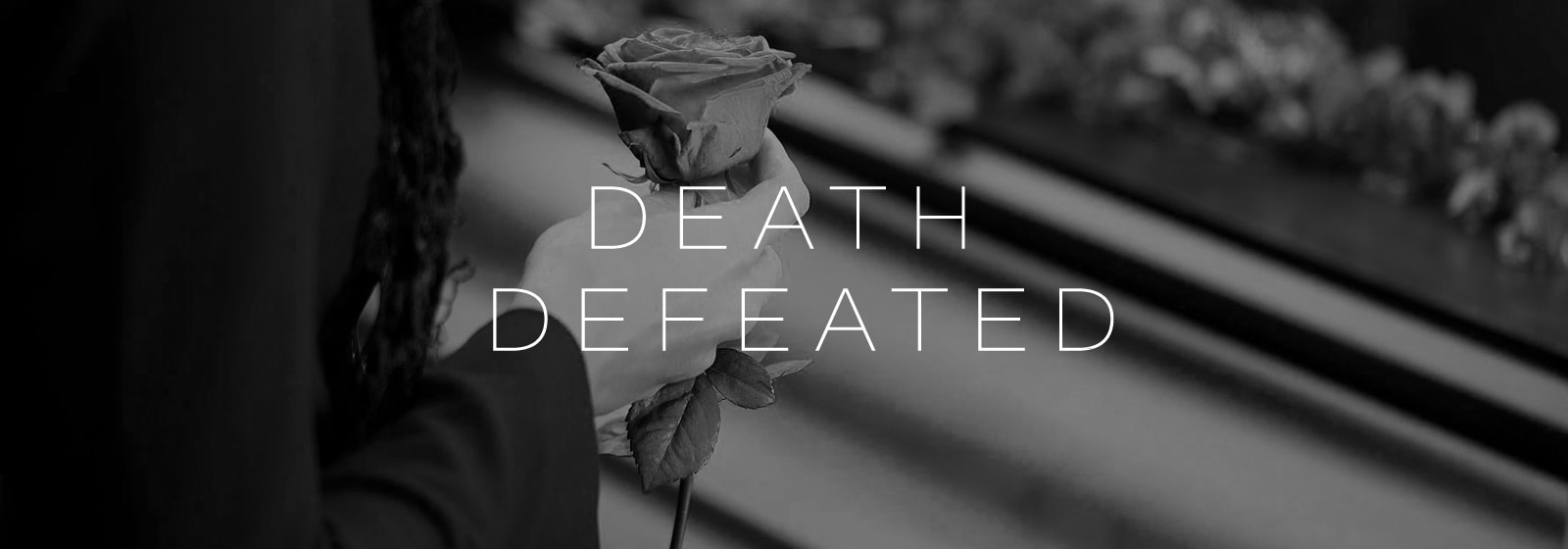Today marks two years.
Two years since I walked out of that hospital room and collapsed in the ICU waiting area, numb and overwhelmed with the reality that he was gone. My Dad – once healthy and strong and so full of life – was gone.
In that moment, everything hurt. Everything felt broken.
In many moments since, I’ve wondered if it will ever not hurt.
I can still hear the beeping and the flatline. I’ll likely never forget how my heart felt like it would never beat the same after I held his hand for the last time. Or how I struggled to find the words for the goodbye I never wanted to say.
It’s a hard thing to know how to respond to death and suffering and sickness. In the two years since my Dad died, I’ve learned that the process of grieving is a roller coaster. There are moments overwhelmed with deep sorrow. Other moments overcome with anger with how much I hate cancer and disease and death. Some moments marked by sweet memories and deep laughter. Still other moments where life is so full and beautiful that I almost forget that he’s gone or that things are irreversibly different now. And a lot of moments that mix and overlap across those spaces. The process is messy and takes time and community and more grace than I would have imagined before I walked through this myself.
On one hand, I never knew that my heart could hurt so deeply or that my eyes could cry so many tears. But, on the other, nothing has tangibly taught me so much about the beauty of the gospel as walking through cancer and death and grieving. Nothing has more significantly rooted my faith in Jesus than His faithfulness and His enduring promises in the aftermath of the hardest thing I’ve yet had to face.
It seems crazy doesn’t it? That suffering can illuminate the heart of Christ? That pain can make our hearts more inclined to see His love? That loss can spark new vision and new hope?
It is crazy.
SUFFERING IS TEMPORARY
One of the most audacious things about the Christian faith is that when we put our full hope and complete trust in the life, death, resurrection and return of Jesus, we’re actually banking everything we believe and know on the unseen reality that death is not the end of the story.
We’re putting all of our hope in the reality that Jesus beat death. We’re staking a claim in the reality that what Christ has ultimately won for us in eternity by conquering death is actually way better than the cost of all of the struggles we face.
The story of Jesus’ life shows us that when He beat death through the power of His resurrection, He conquered the power of death forever. We can stand in the midst of pain and the aftermath of struggle and know that death holds no victory and the grave has no sting. (1 Corinthians 15:55)
And even more so than that, because He conquered death, we have endless hope.
In 2 Corinthians 4:16-18, Paul says it like this, “…we do not lose heart. Though our outer self is wasting away, our inner self is being renewed day by day. For this light momentary affliction is preparing for us an eternal weight of glory beyond all comparison, as we look not to the things that are seen but to the things that are unseen. For the things that are seen are transient, but the things that are unseen are eternal.”
An eternal weight of glory beyond all comparison. The promise of a day when suffering will be silenced forever and all hope will find its final resolution in Christ. The seemingly crazy reality that death doesn’t win the day. Not now. And not ever.
And the promise that one day seeing Christ face-to-face will be and is absolutely beyond compare of anything and everything this world can offer us. All credit the incarnation, humility, death, resurrection, and power of Jesus.
Pain and loss cannot thwart the promises of God. Death cannot silence the power of His gospel, nor can suffering diminish the beauty of His love for us.
SUFFERING IS MEANINGFUL
Suffering is an inevitable part of the human experience. It’s staggering and absolutely heartbreaking to think about the amount of pain that there is in this world. And there’s nothing we can do to protect ourselves against it, because there is no amount of “success” or “happiness” or “safety” or “health” that makes us immune to its reach. Life will, at one point or another (and likely over and over throughout the course of our lives) break our hearts and bring us to our knees.
The prognosis is grim. I’m sorry to rain on your parade if you thought otherwise.
But the worse things are, the greater the redemptive story needs to be to make things right. The worse things are, the more we are able to see the stunning depths of glory, power, and goodness of Jesus in contrast. Following Jesus doesn’t mean that we can or will avoid suffering. It simply anchors us in a foundation deeper and stronger than anything we can muster up in our own strength or apart from Christ.
And so, suffering, for the Christian, is an opportunity to lean into the faithfulness of our God who never changes and never fails us. It’s an opportunity to look forward with renewed vision for the promises and life that is to come. Suffering gives us an eternal perspective that we wouldn’t naturally look toward without the discomfort of pain and loss. Suffering molds us and changes us, for better or worse, whether we want it to or not.
In his brilliant and compassionate book, Walking with God Through Pain and Suffering, Timothy Keller said it like this: “Christianity teaches that, contra fatalism, suffering is overwhelming; contra Buddhism, suffering is real; contra karma, suffering is often unfair; but contra secularism, suffering is meaningful. There is a purpose to it, and if faced rightly, it can drive us like a nail deep into the love of God and into more stability and spiritual power than you can imagine.”
When we walk through deep sorrow and we find ourselves raw and broken before God, we become tangibly aware that we need something beyond ourselves. When we reach the end of our own understanding and encounter the limits of medical progress, suffering shows us how desperately we need promises and vision that reach beyond this temporary life. Suffering tangibly shows us that things are broken here and that we desperately need a God who can reach into the brokenness with enduring hope.
And so, maybe more than anything, suffering opens our eyes to see God’s unchanging character. He’s the God who sits in the midst of the hurt with us. The Saviour who never leaves us as we cry in those hospital rooms and in the countless painful days that follow. He’s the God who walks with us through seasons of confusion and hurt and — in every moment where hope seems hard to find, His presence surrounds us and He promises us that there’s more going on than what meets the eye.
Because He beat death. He conquered the grave.
And because He did that, hope is never lost. Something spectacular is on the horizon. Something eternal and endlessly and perfectly good is around the corner. Cancer will be no more. Suffering will end.
So, amidst the tears and the struggles and the ache and the confusion, we do not lose heart. Pain and loss cannot thwart the promises of God. Death cannot silence the power of His gospel, nor can suffering diminish the beauty of His love for us.




